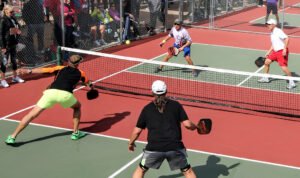In the realm of recreation and community engagement, an unexpected sport has taken center stage in recent years, captivating the hearts and paddles of players from all walks of life. Enter the incredible world of pickleball – a delightful amalgamation of tennis, ping pong, and badminton, played with fervor and passion. But this quirky and rapidly growing sport has not only captured the attention of enthusiasts; it has also piqued the curiosity of local governments across the nation. As we delve into the intricacies of pickleball, it becomes clear that this seemingly innocent game has inadvertently become entwined with a complex web of political debates and policy decisions at the local level. From debates over funding and court allocation to concerns surrounding noise and neighborhood dynamics, the politics of pickleball have thrust local governments into the heart of the action. Strap on your sneakers, wield your paddles, and join us on this journey through the fascinating landscape where sports and politics collide, shedding light on how local governments are getting involved in the exciting world of pickleball.
Table of Contents
- The Growing Popularity of Pickleball: A Sport Taking Local Communities by Storm
- Exploring the Role of Local Governments in Facilitating Pickleball’s Rise
- Challenges and Opportunities: Finding the Balance in Pickleball Facilities Management
- Embracing Inclusivity: How Local Governments Can Promote Accessible Pickleball Programs
- Building Partnerships: Collaborating with Community Organizations to Foster Pickleball Growth
- Q&A
- Insights and Conclusions
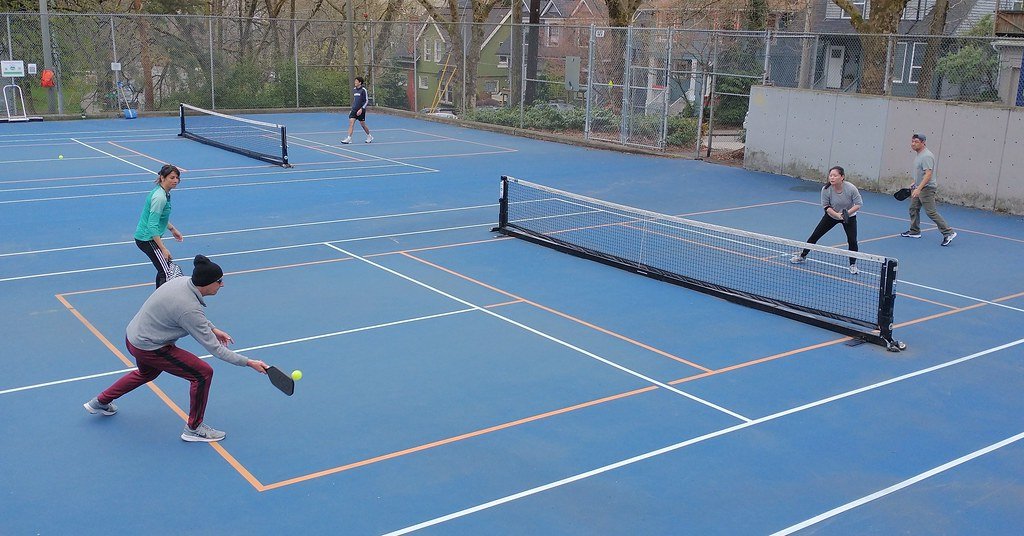
The Growing Popularity of Pickleball: A Sport Taking Local Communities by Storm
Pickleball, the latest craze sweeping across local communities, has quickly gained a loyal following. This unique sport, with elements of tennis, badminton, and table tennis, offers a thrilling and engaging experience for players of all ages and skill levels. With its simple rules and low-impact nature, pickleball has captured the hearts of both avid athletes and casual enthusiasts alike.
One of the main reasons behind the soaring popularity of pickleball is its accessibility. The sport can be played on a variety of surfaces, including outdoor courts, gymnasiums, and even driveways. Its smaller court dimensions make it perfect for communities with limited space, and the reduced physical demands compared to other sports make it an ideal choice for seniors and those recovering from injuries.
Furthermore, pickleball boasts a friendly and inclusive atmosphere that sets it apart from traditional sports. The game encourages social interaction, teamwork, and good sportsmanship. Whether you’re looking to join a local league, participate in tournaments, or simply connect with fellow enthusiasts, pickleball provides endless opportunities to become part of a vibrant and welcoming community.
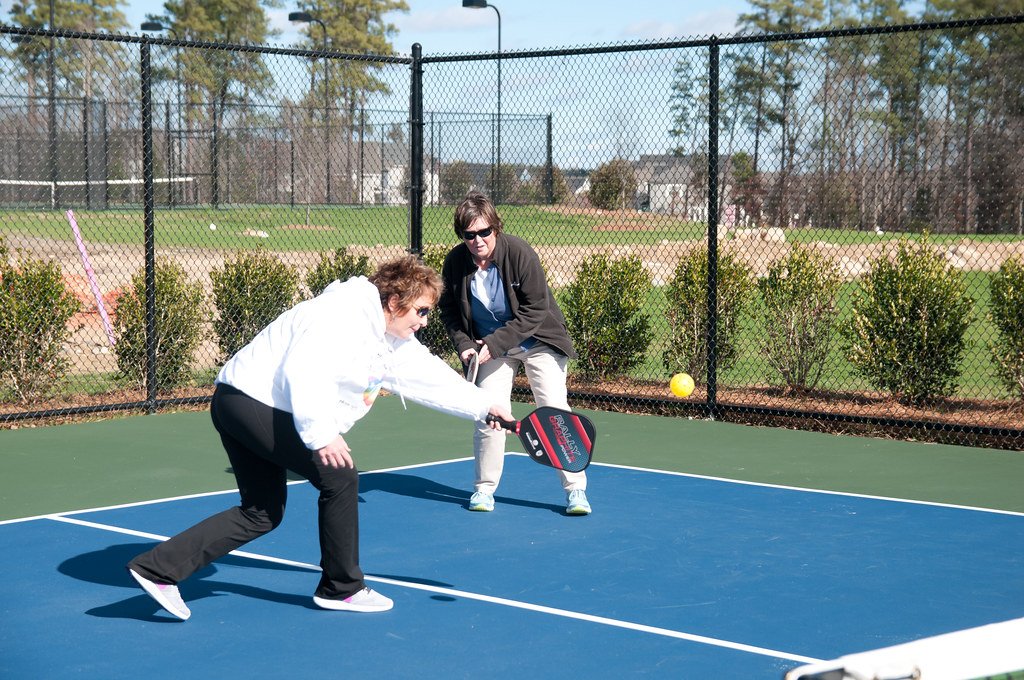
Exploring the Role of Local Governments in Facilitating Pickleball’s Rise
There is no denying the rapid rise in popularity that pickleball has experienced in recent years. This unique sport combines elements of tennis, badminton, and ping pong, captivating players of all ages and skill levels. While the sport’s surge in popularity can be attributed to various factors such as its accessibility and appeal, it is worth acknowledging the crucial role played by local governments in fostering pickleball’s growth.
Local governments have recognized the incredible potential of pickleball as a community-building sport that promotes physical activity and social interaction. As a result, many municipalities have taken proactive measures to facilitate the development of pickleball facilities. By investing in the creation of dedicated pickleball courts, local governments have not only met the demand for accessible playing spaces but have also shown their commitment to promoting healthy lifestyles among their residents.
Furthermore, local governments have played a significant role in organizing events and tournaments aimed at popularizing pickleball within their communities. These initiatives serve as a platform for players to showcase their skills, connect with fellow enthusiasts, and ultimately contribute to the growth of the sport. Through partnerships with local businesses and organizations, governments have been instrumental in creating opportunities for players to engage in friendly competition and enjoy the camaraderie that comes with being part of a thriving pickleball community.
In conclusion, the rise of pickleball as a beloved sport would not have been possible without the support and involvement of local governments. From the establishment of dedicated facilities to the organization of events, their commitment to pickleball has provided a solid foundation for the sport’s exponential growth. As more and more people discover the joys of pickleball, it is essential to recognize the instrumental role played by local governments in cultivating this vibrant and inclusive sporting community.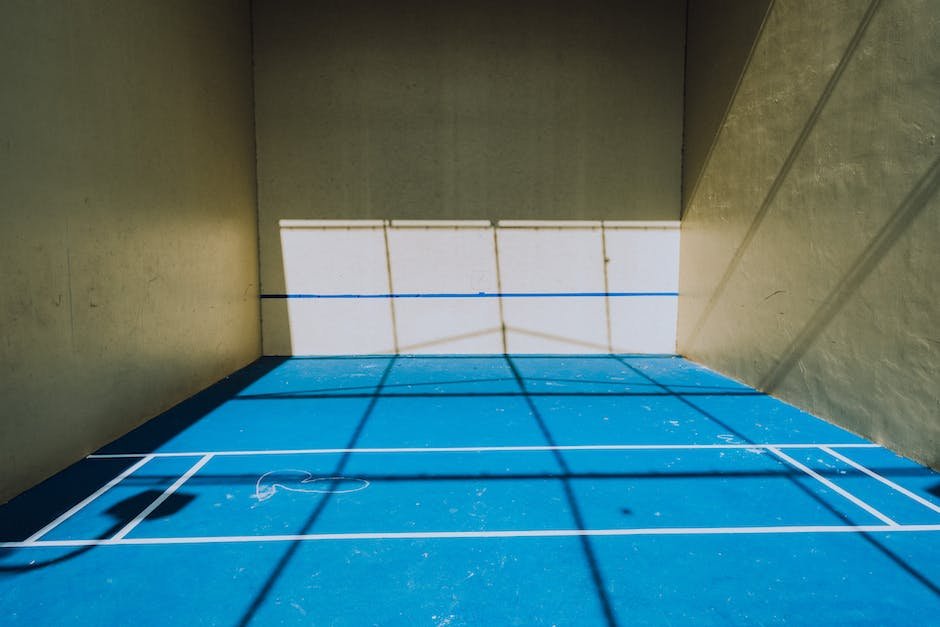
Challenges and Opportunities: Finding the Balance in Pickleball Facilities Management
Pickleball Facilities Management: Navigating Challenges and Embracing Opportunities
Managing pickleball facilities comes with its fair share of challenges, but also presents exciting opportunities to create a thriving and inclusive community. A careful balance must be struck to ensure the smooth operation and growth of these spaces where enthusiasts come together to enjoy the sport.
Challenges:
- Space Utilization: Maximizing the use of limited space is a common hurdle, especially in urban areas where land is scarce. Facility managers face the challenge of accommodating different skill levels, offering both competitive and recreational play options.
- Maintenance and Upkeep: Ensuring pickleball courts remain in optimal condition requires regular maintenance and upkeep. The wear and tear from frequent use, coupled with weather elements, demand constant attention to keep the surfaces safe and playable.
- Community Engagement: Building a sense of community and fostering inclusivity can be challenging, as pickleball players span diverse age groups and backgrounds. Encouraging participation from everyone, regardless of skill level, is essential for a thriving and vibrant pickleball facility.
Opportunities:
- Technology Integration: Embracing technological advancements can enhance facility management. Online reservation systems, for instance, streamline court booking, while interactive kiosks can provide players with real-time updates and information.
- Program Diversity: Facilities have the opportunity to offer a wide range of pickleball programs and events, catering to different preferences and skill levels. From beginner clinics to competitive tournaments, creating a varied program schedule can attract a larger player base.
- Partnerships and Sponsorship: For financial sustainability, facility managers can seek partnerships and sponsorships with local businesses or pickleball equipment manufacturers. These collaborations not only provide the necessary funding but also contribute to building a stronger pickleball community.
In conclusion, pickleball facilities management involves overcoming challenges like limited space, maintenance demands, and fostering inclusivity while embracing opportunities such as technological integration, program diversity, and partnerships. Striking the right balance ensures the longevity and success of pickleball facilities, creating spaces where players can indulge in the joy of the game and forge lasting connections.
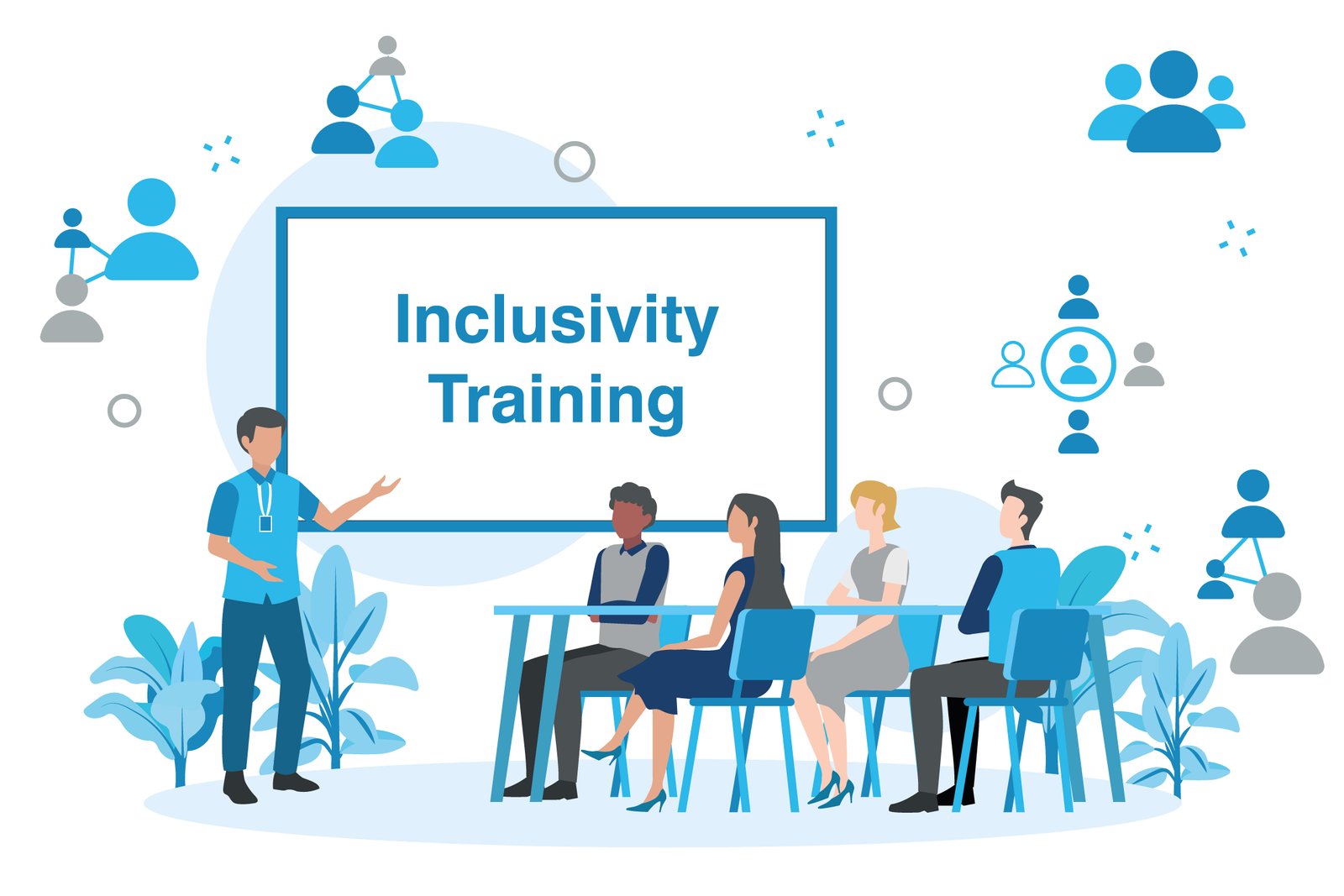
Embracing Inclusivity: How Local Governments Can Promote Accessible Pickleball Programs
Pickleball is a rapidly growing sport that appeals to individuals of all ages and abilities. To ensure that all members of the community have the opportunity to participate and enjoy this sport, local governments have a key role to play in promoting accessible pickleball programs. By embracing inclusivity, local governments can create an environment where individuals with disabilities, seniors, and people from diverse backgrounds feel welcome and empowered to engage in pickleball activities.
How can local governments promote accessible pickleball programs?
- Invest in accessible facilities: Local governments should allocate resources to design and construct pickleball courts that meet accessibility standards. This includes providing wheelchair-accessible paths, ensuring proper court dimensions, and installing equipment that accommodates individuals with different physical abilities.
- Offer adaptive equipment and training: To cater to individuals with disabilities, local governments can provide adaptive equipment such as specialized paddles, balls, and court modifications. Additionally, offering training sessions and clinics specifically tailored to participants with disabilities can promote inclusivity and enhance skill development.
- Collaborate with community organizations: Local governments should partner with advocacy groups, disability organizations, and seniors’ centers to raise awareness about accessible pickleball programs. By leveraging the expertise and networks of these organizations, governments can reach a wider audience and ensure that these programs are well-utilized.
With a commitment to inclusivity, local governments have the power to make pickleball a sport that truly embraces and celebrates diversity. By implementing accessible pickleball programs, communities can foster social cohesion, promote physical wellbeing, and provide a welcoming space for everyone to enjoy the game, regardless of their abilities or background.
Building Partnerships: Collaborating with Community Organizations to Foster Pickleball Growth
Collaboration is the key to success, and in the world of pickleball, this is no different. We understand that growing the sport requires collective efforts, which is why we actively seek partnerships with community organizations. By working hand in hand with these organizations, we can create a network of support and resources that will fuel the growth and popularity of pickleball.
When it comes to fostering pickleball growth, community organizations play a vital role. They provide us with a platform to engage with local residents, organize events, and spread awareness about the sport. Through our partnerships, we can collaborate on initiatives such as hosting pickleball clinics, organizing tournaments, and offering equipment rentals. These opportunities not only attract new players but also create a sense of community and belonging.
We believe that by joining forces with community organizations, pickleball can become more accessible to people of all ages and backgrounds. Together, we can break down barriers, expand facilities, and develop programs that cater to every skill level. Through our collaborative efforts, the sport of pickleball will continue to grow and thrive, bringing joy and excitement to communities far and wide.
Q&A
Q: What is pickleball and why is it gaining popularity?
A: Pickleball is a paddle sport combining elements of tennis, badminton, and ping pong. Its growing popularity can be attributed to its accessibility, low cost, and adaptability for players of all ages and skill levels.
Q: How are local governments getting involved in the world of pickleball?
A: Local governments are recognizing the surge in pickleball’s popularity and are taking action by constructing dedicated pickleball courts, allocating funds for equipment and maintenance, and organizing leagues and tournaments to encourage community engagement and promote physical activity.
Q: What benefits can local governments reap from supporting pickleball?
A: By supporting pickleball, local governments can enjoy various benefits such as social cohesion, improved public health, and economic growth through tourism and increased real estate demand for areas with quality pickleball facilities.
Q: Are local governments facing any challenges in implementing pickleball programs?
A: Despite its advantages, local governments often encounter challenges in terms of limited funds and space for dedicated pickleball courts, as well as difficulty in finding suitable locations for new facilities that meet the needs of both players and residents.
Q: How can local governments ensure inclusivity in their pickleball initiatives?
A: To ensure inclusivity, local governments can strive to provide accessible facilities, offer programs catering to diverse demographics, and ensure that pickleball remains affordable for all members of the community by providing equipment loans or low-cost rental options.
Q: How can citizens get involved and support their local pickleball initiatives?
A: Citizens can support their local pickleball initiatives by advocating for the construction of dedicated pickleball courts, participating in public consultations, forming community groups, and volunteering time and skills to assist with organizing events and programs.
Insights and Conclusions
As the sun sets on the pickleball courts, a vibrant tableau of camaraderie and competition, we have traversed the labyrinthine corridors of local governance like never before. The politics of pickleball; an enigma that has intrigued and perplexed many, has revealed its intricate tapestry of involvement from our very own governments. Through the lens of this humble sport, we have witnessed a delicate dance between communities seeking harmony, and local governments endeavoring to strike the perfect balance.
From the sleepy suburbs to bustling metropolises, the fervor for pickleball has transcended mere recreation, becoming a phenomenon that binds individuals from all walks of life. Yet, as its popularity burgeons, the delicate ecosystem within which it thrives beckons the presence of our diligent public servants. Local governments have donned their armor, armed with policies, regulations, and resource allocation, to curate an experience that resonates with both the ardent enthusiast and passive spectator.
Through a kaleidoscope of public hearings and meticulous planning, these governing bodies have donned their pickleball goggles, never shying away from the complex dynamics of funding and infrastructure. Sporting enthusiasts may marvel at the fluidity with which their pleas are handled, as local governments recognize the cultural significance embedded within these pickleball courts. They understand that pickleball is not merely a game; it becomes a conduit for fostering community engagement, promoting an active lifestyle, and forging a stronger social fabric.
As we peel back the layers of political involvement, we are privy to the myriad approaches taken by local governments across the nation. Some embrace the relentless tide of change, leading the vanguard in boosting pickleball infrastructure, tirelessly addressing the pleas of pickleball aficionados. Others, more reserved, opt for cautionary measures, studying the intricate web of bureaucracy and meticulous evaluation before committing to significant investments. Regardless of the approach, the guiding principle remains the same – to preserve the harmony between the sporting pursuit and the greater good.
The politics of pickleball is a finely balanced waltz, where local governments take center stage, leading their communities towards an all-inclusive arena of leisure and competition. Each step they take has the potential to uplift, inspire, and unite, paving the way for even greater moments on these hallowed pickleball grounds.
As twilight casts its enchanting spell, we bid adieu to this intricate journey through the corridors of local governance. The politics of pickleball will forever remain in our hearts as a testament to the power of our communities, and the ability of our elected officials to embrace the myriad moments that shape our society. So, let us rally on, dear pickleball enthusiasts, knowing that behind every serve, every return, and every victory, lies an intricate dance between the dynamics of politics and the pursuit of sporting glory.
As an affiliate, my content may feature links to products I personally use and recommend. By taking action, like subscribing or making a purchase, you’ll be supporting my work and fueling my taco cravings at the same time. Win-win, right?
Want to read more? Check out our Affiliate Disclosure page.


